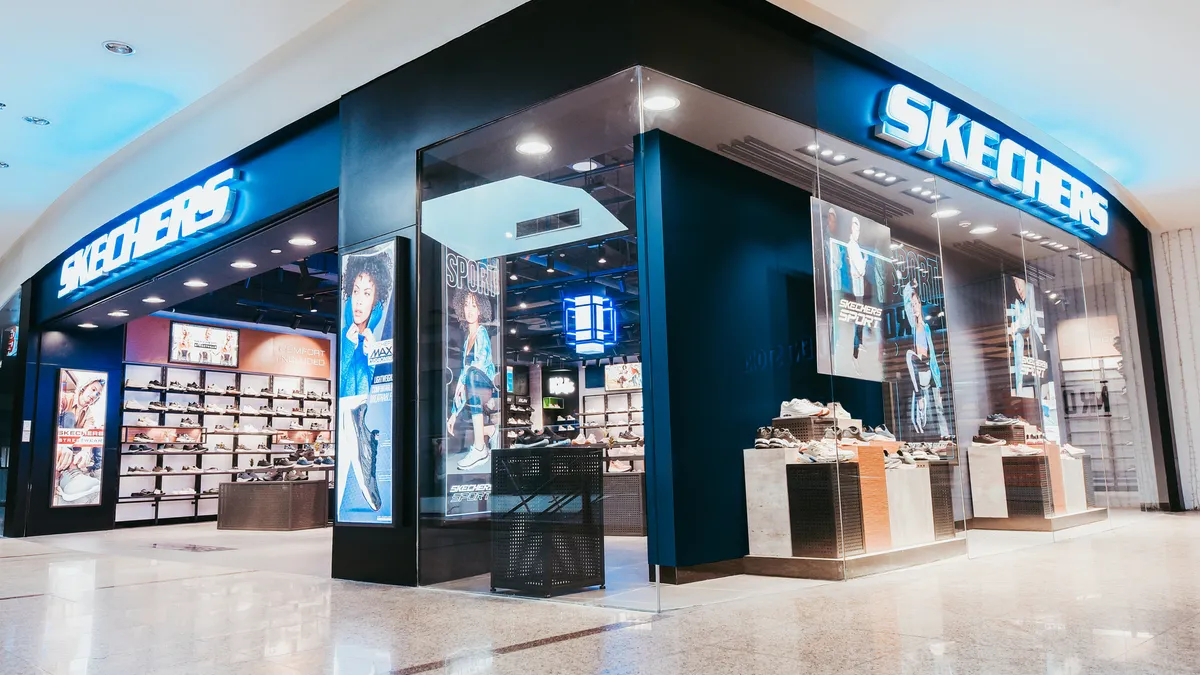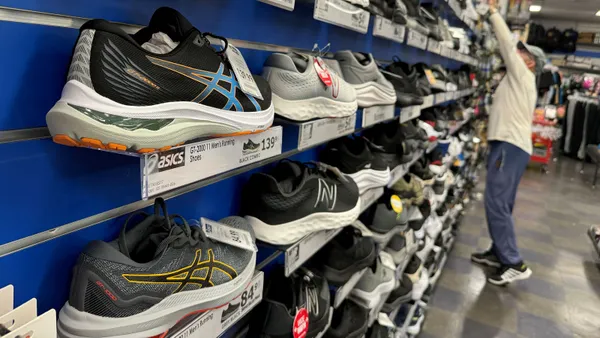Dive Brief:
- Four members of footwear brand Skechers' board have left, the company said in a press release and securities filing.
- While the resignations occurred simultaneously, the company said that "resignations were not the result of any disagreement with the Company or any of its affiliates on any matter relating to the Company's operations, strategy, policies or practice."
- The resignations were effective the same day that Zulema Garcia, senior vice president of internal audit at multilevel marketing company Herbalife Nutrition, joined Skechers' board. The departures also follow an increased stake by activist investors Tremblant Capital Group.
Dive Insight:
Skechers didn't offer a reason for the departure of four board members, specifically Jeffrey Greenberg, Geyer Kosinski, Richard Rappaport and Tom Walsh.
Greenberg is a member of the company's founding family and serves as the company's senior vice president of active electronic media and has been a member of the board since 2000. The other departing directors had been on the board for at least a decade each, according to filings.
They leave less than a month after Tremblant increased its stake in Skechers to more than 5% of the company. In a letter to the company from Dec. 1, Tremblant outlined what it wanted to see from the shoe brand. Among them was cash, delivered to shareholders in the form of dividends and an "aggressive" stock buyback program.
Tremblant also said wants Skechers to dismantle its dual share class structure that gives some shares "super-voting" power and keeps the company's founding family, the Greenbergs, in control of the company.
Tremblant acknowledges the shoe brand's strong performance from a business standpoint. The letter noted that "over the past decade, Skechers has grown revenue faster than Nike, Adidas, Puma, Under Armour, Crocs, and any other relevant peer." Yet the fund thinks its stock is "inexpensive" relative to its the company's performance.
Buybacks could indeed explain that. Tremblant's request is an acknowledgement that the practice of buybacks can raise share prices. Until the 1980s, the practice was effectively illegal, considered by the SEC to be illegal market manipulation. The Reagan Administration opened to gates to more buybacks, which have now become a defining feature of modern American business and the economy.
In retail, the practice is widespread and has made a furious comeback after stalling — for very prudent reasons — during the pandemic. Critics have said that share buybacks encourage short-term investments and divert precious capital away from innovation and employees into a form of financial engineering.
Outside analysts have echoed Tremblant's praise for Skechers' performance of late. "We remain positive on [Skechers] as the company has already exceeded 2019 sales levels despite supply chain challenges impacting inventory deliveries and the international markets still being impacted by COVID," B. Riley Securities analysts led by Susan Anderson said in a research note earlier this month. "We also believe [Skechers] has margin upside as they take price and benefit from reduced promos in addition to lapping a period that had extraordinary freight costs."
With a board shake up and activist pushing for change at the company, the next year could prove a pivotal one for Skechers. If the company does revamp its financial policies and practices, will its operational performance continue as it has?















